SPEAKERS
Rooting for Security: Building a Strong Foundation from the Ground Up
As cyber security professionals, we often find ourselves in situations where we wish we knew earlier what we know now. In this talk, we will dig deep into the soil of cyber security and unearth some hidden gems I wish I had known earlier in my cybersecurity career. These lessons have helped me build a strong foundation from the ground up and grow my cybersecurity expertise.
We will unearth the importance of being a better team player and leader and how to cultivate a strong and effective cybersecurity team that can weather any storm. To keep our skills fresh and thriving, I will share some best practices to help you bloom.
Furthermore, we will discuss life hacks to raise the blades and achieve a healthy work-life balance, so you can enjoy the fruits of your labor without burning out. By grassping the lessons learned in this talk, you can root deeply into cybersecurity and build a posture that will stand tall and strong against any threat.

John Harper
John Harper is a Sr. Security Engineer at Tenable, the global leader in cyber exposure management. With over 20 years of Information Security experience, John's main passions are offensive security and Active Directory. John has constructed, led, and operated Red Teams and Penetration Testing Teams at Fortune 300 companies like Nationwide Insurance, American Electric Power, The Home Depot, and Huntington Bancshares. John founded Hackers Teaching Hackers (HTH), Ohio's largest Information Security practitioner-based conference.
World War II versus Modern Day cryptography (or how I learned to stop worrying and love cryptograpy)
It’s been said that code breaking in the 1930s and 1940s shortened World War II by as much as two to four years and saved millions of lives. As the foundation of modern security systems, cryptography has become an integral layer of defense within all digital business, both public and private. Understanding both classical and modern cryptography is essential for ALL roles in technology.

Randy Lee
Randy Lee is a Senior Systems Engineer for Veeam Software. Randy has led a variety of technology initiatives that have modernized legacy data centers and significantly reduced operating budgets while assuring non-disrupted operations. Randy has managed technology teams in manufacturing, healthcare, and the financial services industries where he focused on aligning technical strategies with corporate business objectives. Randy has a Bachelor of Science in Business Administration/MIS with a minor in Computer Science from the University of Wisconsin-La Crosse. Randy is a Merit Badge Counselor for the Boy Scouts of America, an instructor with the U.S. Naval Sea Cadet Corps, and a Mentor for the Air Force Association CyberPatriot Program. Randy resides with his family in the Milwaukee area.
Cyber Insurance and the Incident Response Process
This is a panel discussion with Matthew Thomson as an insurance broker, Zach Willenbrink as a breach coach/data privacy lawyer from Godfrey Kahn, Daved Kruse as a representative from Arctic Wolf who works incident response, and moderated by Ken Ebert. We would give the background of what Cyber Insurance does and does not cover, what the process looks like in a cyber event/incident, what to expect from a breach coach and IR firm. Would then open up for audience questions.
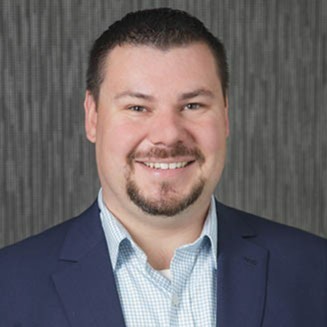

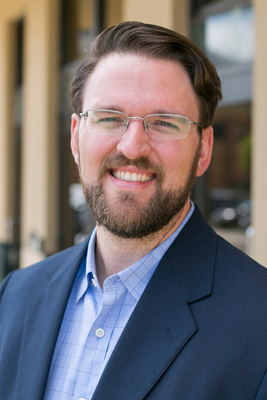

Matthew Thomson, Zach Willenbrink, David Kruse, Ken Ebert
Matthew Thomson is the Director of Cyber Liability at M3 Insurance. In this role, he is responsible for sales support, market relations, training, and thought leadership within the cyber, media, and technology error and omissions (E&O) lines of coverage. Matt also oversees and develops M3’s cyber book of business. In serving as a cyber security strategist and advisor, he helps clients mitigate cyber exposures through preventative controls and formal risk transfer mechanisms. Matt has diverse experience in incident response, cyber risk, compliance frameworks, and security awareness & training – among other cyber related fields.
Zach Willenbrink is an attorney at Godfrey & Kahn. He is a member of the firm’s Litigation, Data Privacy & Cybersecurity, and Technology & Digital Business, and he chairs the Data and Technology Disputes practice group. Zach helps businesses prepare for and respond to cybersecurity incidents. When disputes and litigation result from a data breach—as is often the case—Zach guides clients through it, leveraging his significant trial- and appeals-level experience and prior position as a law clerk for a federal district judge. Zach has both cybersecurity and privacy certifications from organizations including CompTIA, (ISC)2, UCLA, and the IAPP.
David Kruse is the Director of Insurance Alliances at Arctic Wolf, the leader in security operations and incident response. At Arctic Wolf, David works with cyber insurance carriers and brokers to deliver services and tools that help businesses of all sizes and industries reduce the frequency and severity of cyber-attacks, and should one occur, respond to them with a full-service incident response program. Prior to his current role, David was the Cyber Practice Leader at Hausmann Group, an insurance and risk management firm based in Madison, WI, where he advised the firm’s clients on how to align their cybersecurity practices with cyber insurance requirements to achieve the best risk transfer results.
Ken Ebert is a senior consultant at DeepBlueNorth. He is a CISSP with over 30 years of Information Technology experience working in application development, networking, systems infrastructure and cybersecurity. Ken has worked with companies of varying sizes and industries allowing him to provide a breadth of perspectives in risk and resiliency.
Watching the Watchers – Analyzing URL Scanning Solutions at Scale
In this talk, Nicholas will showcase a personal project that analyzes defensive cybersecurity solutions. More specifically, he will dive into companies that scrutinize URLs within phishing emails to irk out their weaknesses and indicators that can be used to bypass modern security controls at scale. During the talk, we will have some fun with Elasticsearch, FastAPI, and Javascript wrapped up into a neat project coined “httpot.”

Nicholas Anastasi
Nicholas Anastasi started his career in cybersecurity at Sprocket Security and hasn’t looked back. Continuous Penetration Testing is all he knows, and during his day-to-day, he leads the penetration testing team, writes a ton of Python, and works tirelessly to improve the Continuous Penetration Testing process. In his free time, Nicholas enjoys running, eating too much candy, and working on his homelab.
Confessions of a Sysadmin
What is the biggest potential threat to your network that keeps you up at night? Is it an attack from North Korea? The latest Remote Code Execution Microsoft 0-day? You'd probably not expect things like your copier to be the cause of a compromise of your entire environment. In this talk, Brett will talk about sources of compromise such as these that aren't obvious since system administrators don't have the mindset of a hacker and often are not aware of how their decisions can affect their security posture. Using the lessons learned during his sysadmin experience and the perspective gained being a pentester, Brett will discuss security pitfalls that sysadmins are often unaware of. This talk will show how re-evaluating our security assumptions and adopting an attacker's mindset can help better safeguard our networks.

Brett Gustafson
With over 15 years in the IT realm, Brett's transition from system administrator to ethical hacker has equipped him with invaluable insights into the ever-evolving threat landscape. As an OSCP and OSWP certified professional at Evolve Security, Brett specializes in network penetration testing, with a particular focus on Active Directory environments, social engineering campaigns, assumed breach assessments, and physical penetration testing.
The Cyber <> Fraud Connection
All companies deal with financial transactions of some sort. When money is involved, fraud is sure to follow. Whether you are working with fraud daily or you are strictly a cybersecurity professional, this talk is for you.
We will discuss how Fraud and Cyber teams can work together to combat criminals of all sorts to better position your company against more than purely cyber risks. We will answer some questions such as:
-What cyber data helps detect fraud?
-What should we do if we see fraud?
-How can developers, security personnel, fraud fighters and business folks work hand in hand to solve problems bigger than themselves?
As a bonus, Matt will share some personal fraud reduction techniques you can start using today!

Matt Meis
Matt is a Security Instructor at Mid-State Technical College. He has worked on banking fraud detection, insurance systems and most recently phishing detection with DomainAlarm. Matt brings energy to his talks from his experiences and a passion for sharing knowledge.
Enterprise Cybersecurity from Scratch
Why should you care about cybersecurity?
Where do you start?
What needs to be protected?
How do you prioritize?
What are the trade-offs?
Why cybersecurity is everyones responsibility?
How do you keep getting better?
Conclusion!

Umer Khan
Umer Khan had over 8 years experience in IT. He has a Bachelors Degree in Science, and MBA. He possesses numerous IT certifications. Currently, he is about 90% done with a Degree in Cybersecurity from WGU. He is also working towards his CISSP as we speak.
Umer lives in the Appleton (WI) area with his wife and kids (Mahira and Yusef) and he speaks multiple languages. In his spare time, He loves to read, travel, and spend time with family/friends.
Evolving from Cyberpunk to Solarpunk: Actionable Guidance from a hacker for hope into the future
As society seemingly is trending towards a cyberpunk dystopian future, what is our responsibility as cybersecurity professionals and hackers to ensure a more positive utopian future?

Michael Goetzman
Michael Goetzman, Hacker, enjoys experimenting with technology, cloud security applications, genetics/bio-hacking, and examining the confidentiality of critically sensitive connected products, medical devices, and electronic medical records. He holds a Masters of Science (M.Sc) from UWGB in Business Management involving international healthcare technology studies in Havana, Cuba. In his free time, Michael enjoys exotic rides in zeppelins, soaring in experimental planes, and piloting colorful hot air balloons around rural Wisconsin. Michael believes in freedom of non-harmful information, equality before the law, the advancement of scientific fringe research by the way of individual imperatives.
Cloud Hacking Scenarios
You’ve been hearing a lot about security best practices, but you’re not convinced they can really make a difference? Do you think your resources are safe only because nobody would notice your random IP address?
In this presentation, I will share real-life attack scenarios to convince you that misconfigurations can have dire consequences.
Attendees will gain a comprehensive understanding of real-world examples, complete with screenshots.
I will discuss multiple different attack vectors to demonstrate the diverse range of threats organizations face in today's digital landscape.

Michal Brygidyn
Michal is an experienced ethical security researcher, cloud security architect, AWS Ambassador, AWS Community Builder and a conference speaker. Michal is passionate about finding sources of leaking data, chaining small misconfigurations, and getting admin access to your environment to help you become more secure.
The Good, the Bad, and the Ugly of Application Control:Tips and Tricks for Successful Implementation
Are you feeling a little out of control when it comes to application control? Fear not, because we've got your back! Join us for a presentation that will take you on a journey through the ups and downs, the good, the bad, and the downright ugly of application control implementation. From compatibility issues to resource constraints, we'll show you how to avoid the pitfalls and get the job done right. Austin will share tips and tricks for identifying and whitelisting trusted applications, optimizing rule creation and management, and time permitting responding to alerts and violations. And we promise to keep things light-hearted and entertaining, so you won't be checking your watch every five minutes. Whether you're a seasoned security analyst or a newbie IT administrator, we guarantee you'll come away with a newfound sense of control over your application control. So, bring your sense of humor and get ready to laugh and learn!

Austin Johnson
As a Principal Consultant, Austin spends most of his days diving deep into CyberSecurity. With over a decade of experience, he has worked in Aerospace, Large Retailers, Critical Infrastructure, Financial, and Government sectors, securing and maturing their cybersecurity posture.
Austin has a tremendous background not only in cybersecurity but computers in general. He started at an early age working on devices with 386 processors and a command line interface. He took his passion for computers and his thirst for knowledge and voraciously applied them to the cybersecurity landscape.
Austin has taken his passion for computers and has applied it to a Security Landscape some people might shy away from nu living in the endpoint security spaces of EDR, AV, and Application Control.
Here Come the Feds: SEC Proposes Rules on Cyber Risk Management Disclosure by Public Companies
Today, cybersecurity is an emerging risk with which public issuers increasingly must contend. Investors want to know more about how issuers are managing those growing risks. Companies and investors alike would benefit if this information were required in a consistent, comparable, and decision-useful manner.
In March 2022, the Securities and Exchange Commission proposed amendments to its rules to enhance and standardize disclosures regarding cybersecurity risk management, strategy, governance, and incident reporting by public companies.
This presentation will provide a crash course on SEC reporting (what in the world is a 10-K and why do I care?), provide an overview of the proposed / final rule, "Cybersecurity Risk Management, Strategy, Governance, and Incident Disclosure by Public Companies", and provide a discussion of broader industry impacts. Will your board be ready?
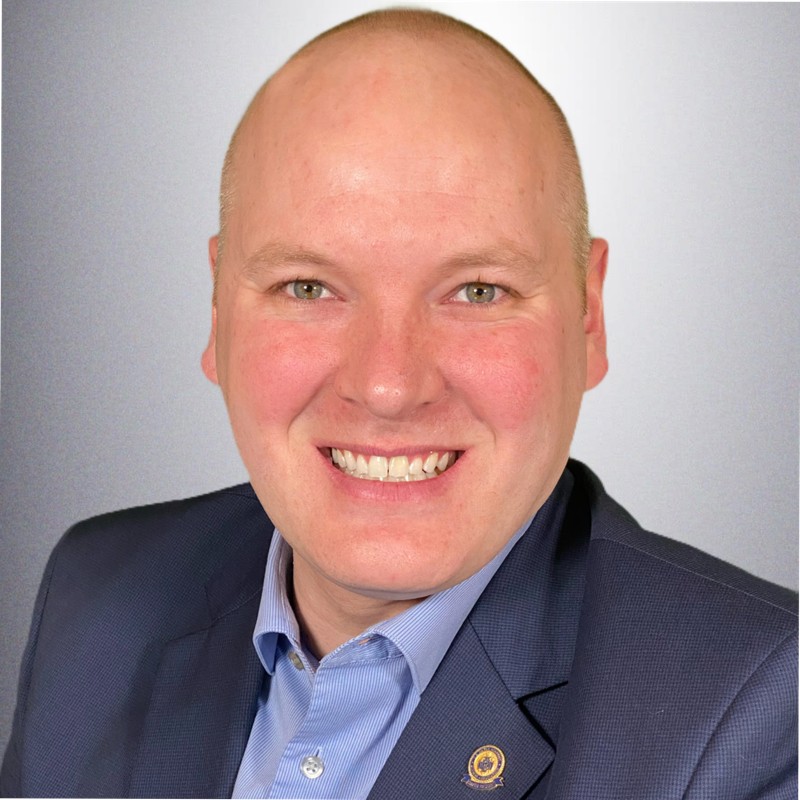
Tim Mahoney
Tim Mahoney has been the Director of Information Security at Festival Foods since 2022. He has over 10 years of Information Security experience from a variety of industries including Defense, Financial, Nuclear, and Manufacturing. Before starting his civilian career in 2013, Tim completed 3 years of active duty and 2 years in the reserves, departing the Navy as an O-3 (Lieutenant). He is qualified as both an Information Warfare Officer and Surface Warfare Officer.
Tim holds an MS in Computer Sciences from the University of Wisconsin - Madison, and a BS in Computer Science & Information Technology from the United States Naval Academy. He will be graduating with an MBA from the Wisconsin School of Business in May 2023. Tim maintains a variety of professional certifications in security and risk management.
Tim and his wife, Jennifer, live in Green Bay with their son Fulton and dog Trapper.
Tales of Physical Penetration Tests and How to Defend Your Organization
Have you ever wondered what it's like to be a legal criminal? Join us as we tell the tales of our physical penetration tests. From dumpster diving to cloning RFID cards with our Flipper Zeros, learn our most successful techniques and how to defend against them!

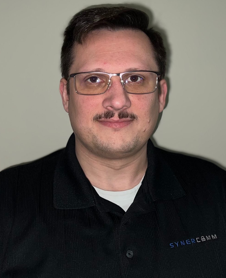
Ryan Zagrodnik and Chad Finkenbiner
Ryan Zagrodnik has been consulting as a Penetration Tester for SynerComm for almost five years. Ryan brings over sixteen years of red and blue team experience. Ryan started his career maintaining large enterprise networks as a System Administrator in 2007. Ryan earned his CISSP in 2011 and has been working in offensive security ever since. Prior to starting at SynerComm, Ryan spent three years on an internal red team at a Fortune 1000 organization. Ryan also spent several years working in offensive and defensive security roles for large enterprises who provided services for the U.S. Department of Defense and Department of Education.
Chad Finkenbiner has worked in information technology for well over 15 years. Before joining the team at SynerComm, Chad worked in the healthcare industry supporting medical imaging and voice dictation systems across the country. He also served as a Data Network Specialist in the United States Marine Corps. In addition to physical penetration testing, Chad is skilled in wired/wireless network penetration testing. When he isn't consulting, Chad serves as a professional development mentor, guest speaker, as well as an elected official on his local city council.
Dive into Data: Building a Security Data Lake on AWS
When dealing with security data, we often turn to traditional SIEMs. These solutions provide “out of the box” convenience but often leave you with a huge bill and are missing the power to really explore your security data. Network Security Monitors such as Zeek generate large amounts of data that can be unruly for a traditional SIEM and next to impossible to process on disk.
Enter the AWS security data lake.
By utilizing data tools built into AWS, we can build a custom solution that allows you to utilize your security data to its fullest potential. We’ll discuss how to use AWS Kinesis to ingest your data in real time, store it in S3, define your schemas using AWS Glue, and finally use AWS Athena to leverage the power of SQL to hunt through and analyze your security data. Grab your beach towel and your favorite tiki drink and let’s dive in!

Ryan Victory
Ryan is a Staff Cybersecurity Professional with an impressive background in protecting businesses and users from cybersecurity threats and fraud. With a passion for data analytics and a dedication to addressing complex security issues, he is currently responsible for safeguarding users of the world's largest social networks from malware threats.
Throughout his career, Ryan has held various cybersecurity roles at Meta, Corelight, Comerica Bank, and Zions Bancorporation. As a Staff Security Engineer at Meta, he has proactively hunted malware to provide a safer experience for users across Facebook, Instagram, WhatsApp, and Quest. At Corelight, he led a top-tier software engineering team, contributing to open-source Zeek and transforming research into production-ready solutions. Ryan has also been instrumental in the development of real-time financial fraud detection platforms and threat hunting at Comerica Bank.
Introduction to SBOM - What is it and do I need one?
Software Bill of Materials (SBOM) are new and exciting, but what do they actually do and do you REALLY need one? If you read any security news lately, it seems like everyone is talking about how an SBOM can solve whatever problem they have, and they are years into their SBOM journey. But many of us don’t even know what they are.
The reality is nobody actually has SBOMs figured out, or even know what to do with them. SBOMs are still very new and come with as many benefits as challenges. In this session we will look at what an SBOM is. Did you know there are different data formats and even different types of SBOMs? We will cover what we can do with them, and some of the coming tools and ideas around SBOMs. The future is already here – it’s just not very evenly distributed.
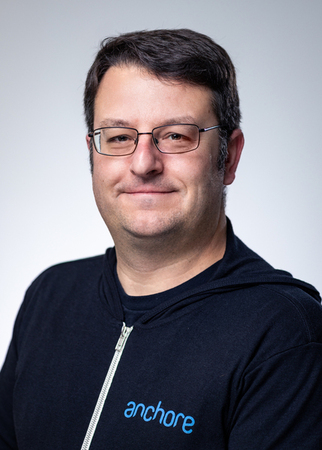
Josh Bressers
Josh Bressers is the Vice President of Security at Anchore. Josh has helped build and manage product security teams for open source projects as well as several organizations. Everything from managing supply chains, vulnerabilities, security development lifecycle, DevSecOps, security product management, security strategy, and nearly any other task that falls under the security umbrella. Josh co-hosts the Open Source Security Podcast and the Hacker History Podcast. He also is the co-founder of the Global Security Database project to bring vulnerability identification into the modern age.